- Home
- Jane Arbor
Kingfisher Tide Page 2
Kingfisher Tide Read online
Page 2
`Saint-Guy' ! Just like that. No initial. For all the world as if he were a belted earl, needing to sign himself only by his title. 'Saint-Guy.' Who was he, anyway? Maurinaire's chief landowner, apparently, and its seigneur, according to Maitre Verrier. But a seigneur was nothing but a squire in England, and no squire of her acquaintance fancied himself to that extent !
Meanwhile the light was failing and she must go back. But as she retraced her steps towards her own path a scent, half strange, half familiar, assailed her from the plantation and she stopped again to peer through the fence, trying to track the aroma down.
. . . Burning. Or rather, something recently burnt. Not dangerously. Pungently . . . sweetly. Woodsmoke, of course, the nostalgic campfire smell. Or no—here it would be charcoal burning! At the thought and the memories it conjured—of the Brothers Grimm, whose fairytale woodcutters and poor charcoal-burners had always had three sons, Rose almost choked in sheer delight, and her nostrils were sniffing vigorously when she was startled by a scuffling movement in the undergrowth on the far side of the fence.
Her eyes followed the movement, prepared for some small wild creature but not at all for the miniature red dachshund which emerged, wearing no collar, whimpering and going three-legged, as if one forepaw were in pain.
He came when she coaxed him, but shied away when she attempted to pat him, low through the wire. She stood again, nonplussed. So far as she knew, there were no houses nearer than the town from which he could have come, and if he were injured she could hardly leave him where he was for the night.
Or was it possible he lived on that side of the fence? In a hut? With a charcoal-burner for a master? But she thought not. Somehow he did not look that kind of dog. So her best plan would be to try to catch him, then carry him back to the first house where she could make enquiries about him.
Holding on to one of the fence's support posts, she went over it, the square mesh of the wire allowing her just a toehold. But so much for her hopes. The dog, his injury apparently forgotten, continually frisked out of her reach, and she was standing, thinking she must abandon him, when she realised she was being watched from outside the wire by a tall bareheaded man in windcheater and riding-breeches. As she looked towards him his back was to the failing light, his face in shadow. But when he approached to within a yard of her, she briefly appraised it—the high-boned cheeks, the thin aquiline nose, the lean jawline—and judged his age to be somewhere in the middle thirties.
She smiled diffidently, awaiting the question he was bound to ask. He asked it. "What are you doing
there, mademoiselle? I suppose you know you are trespassing ?"
Rose nodded, brushing mud from the skirt of her raincoat. She had taken a toss over a tree-root in her pursuit of the dog. "Yes, I know," she said. "But apparently he doesn't—" she pointed to the dachshund, who sat, tongue lolling, face all bland innocence, close behind her. "I don't know how he got in, but he was limping along through the undergrowth, so I came over to try to catch him and take him home."
"Limping?" Her questioner raised an eyebrow. "Going on three legs and crying," Rose elaborated. "He looks all right now. And do you know where
his home is?"
Rose felt faintly irritated by the catechism. "No. Do you ?" she parried.
"I think so. He is the pet of the daughter of one of the estate men and he runs as he pleases in the plantations. I think he also knows how to faire la bete—how to fool one into misplaced sympathy— Here, monsieur ! Come, fellow, sautes-toir On the command the man's hand slapped the support post in encouragement, the dog leaped obediently, was caught adroitly by the scruff and set down on four obviously sound feet on the outside of the fence.
"You see?" Rose's companion encouraged the small lead-swinger again with a tap on the rump. "So, monsieur, you've had your fun and you know your way home. Off!" Then he turned back to Rose. "Now you, mademoiselle— That is, unless you mean to camp where you are for the night ?"
Rather sheepishly Rose accepted the hand he
offered to help her climb back over the fence. When she was halfway over he uttered a `Tch !' of impatience and unceremoniously taking her by the waist, lifted her the rest of the way. His manner implied that she was a nuisance and something of an interruption to his own affairs, and she resented that. He knew the dog. She didn't, and who could have blamed her for falling for the creature's sob-stuff ? Trespass or no, if he had really been injured she couldn't have left him where he was.
Meanwhile he had scuttled out of sight, and Rose, not knowing where her companion had appeared from, supposed he would now go on his way. But he swung into step beside her.
"You walked up from the town, mademoiselle?"
"Yes."
"Then I'd better see you back."
Rose halted. "Please don't trouble yourself, monsieur. It's the first time I've been up here, but I shall simply follow the road by which I came."
"It will soon be dark. I shall see you back." His tone made a duty of it, and Rose gave in. Presently he stated, "You're a stranger in Maurinaire, mademoiselle."
"And English ?"
It pricked her self-esteem a little that either her appearance or her accent had given her away. "Yes," she said again. "How did you know?"
The lift of his shoulders was wholly French. "Not difficult to tell," he said. "You're on holiday? Staying with friends?"
"Neither. I—hope to be resident for about a year."
"So?" The pause which followed that was an invitation to explain herself further, so she went on,
"If you live in Maurinaire yourself, you probably know Madame Bonnard's gift shop on the square, La Boutique—"
He glanced at her quickly. "La Boutique? Of course. You mean you're taking up employment with Madame Bonnard there ?"
"Not exactly. That is to say— Well, Madame Bonnard is my aunt. So you see, monsieur—" it gave Rose a sly satisfaction to pay him back—"I am not as English as you thought. I am French on my mother's side. Anyway, my aunt has taken leave from the shop to go out to South Africa for a year, and I and my stepsister are taking over her flat and are supposed to be going to run the business for her while she is away."
" 'Supposed to be' ? Are you doubting your ability to manage it, then ?"
"Not our ability. I think I speak French well enough and my sister has the know-how about fancy goods, and anyway I daresay a good deal of the trade is with the English and American tourists. No, it's permission to run it which we may not get. Because it seems my aunt's landlord has the right to veto a sub-let of the business to us if he chooses."
"Then surely Madame Bonnard should have got his permission before she went abroad ?"
"Of course. But she didn't. She left at short notice and I daresay she forgot there was such a clause in her lease."
"But hasn't she a solicitor to see to things like that for her?"
"Yes. Maitre Verrier. But she didn't consult him,
which shows she had no idea there'd be any difficulties made."
"And who is the landlord in question?"
"Who? Oh—this autocrat who, according to Maitre Verrier, owns nearly all the freehold in Maurinaire and all that"—Rose waved a hand backward at the plantations now behind them—"your local big noise, you know, Monsieur Saint-Guy. You would know him, of course?"
Her companion nodded gravely. "But naturally. Everyone does. So it's Saint-Guy who is standing in your way, is it ?"
Again that style which so piqued her ! But she had to admit, "Well, not definitely yet, because we aren't able to approach him. You see, it seems that we've picked an absentee landlord as well as a bit of a dictator. At present he's away from home indefinitely, and though he has an agent, Maitre Verrier says the agent couldn't give us the go-ahead sign until Monsieur Saint-Guy has vetted us in person himself."
"And meanwhile you can't sell from the shop? How long then since you arrived in Maurinaire ?"
"Only since early this morning. We stayed one night in Paris and came so
uth on the night train."
"Only so recently? Then surely you can afford to wait a little while until you get the green light from Saint-Guy ?"
"Oh yes. But supposing we don't get it? We're so placed that we shall need to depend on the shop's profits for most of our living while we're here. Besides, there's all the goodwill my aunt will have lost if we can't carry on for her. So if Monsieur Saint-Guy doesn't like the look of us or chooses to make diffi-
culties for any other reason, what then? As I told Maitre Verrier, it all sounds a lot too feudal for the nineteen-sixties," added Rose, warming to her subject.
Her companion shrugged again. "Yes, perhaps," he allowed. "But you see, in these parts we happen to be prepared to forgo a few liberties for the sake of our sense of community and the protection we get from the kind of tradition you're pleased to call `feudal.' "
Momentarily Rose halted in order to turn an incredulous stare upon him. "You mean that if Monsieur Saint-Guy refused to let us carry on La Boutique, you'd consider he had the right to do so?" she demanded.
"In your case, I'd think he was possibly mistaken. But within his rights, why certainly. If he considers it's in Maurinaire's best interest to keep undesirable tenants out of his properties, why not?"
" 'Undesirables' ! But I'm Madame Bonnard's niece, and if he keeps us out, he's victimising her too !"
"He would be, I agree. But why cross that bridge before you come to it, mademoiselle? Why should you expect to fail to qualify with Saint-Guy? What are you afraid of ?"
"Afraid of ? Why, nothing," Rose denied.
"No shady past you don't want uncovered? No embezzlements? No disturbance of the peace, no petty larcenies before you left England?"
She had no need to understand all the idiom of that, nor to glance at his thin dark features to know that it amused him to 'take the mickey.' She said coldly, "Of course not. It's simply that I'd object strongly to being classed as undesirable and that I'm
irked by having to fold my hands and do nothing until Monsieur Saint-Guy comes home." Then as at that moment they emerged upon the square within a few yards of the shop, she halted and offered her hand to him in the French habit at parting.
"Well, thank you, monsieur, for seeing me so far. I shall be all right now," she added.
"Very well. A pleasure," he said, but did not at once release her hand. "Let's see," he calculated. "Bonnard, your aunt's married name, and you, French only on her and your mother's side. So your name would be—?"
"Drake," she told him. "Rose Drake, and my stepsister is Sylvie Lyon. Neither of us has a parent living now. And you, monsieur, are—?"
But before he could reply, a buxom woman, her apron showing below her coat and with a yard of French bread in the crook of one arm, bore down upon them to snatch his hand from Rose's into the pump-handle grasp of her own.
"Ah, Monsieur Saint-Guy," she panted, "you are back amongst us, and not a word heard in the town that we could expect you! And Madame Saint-Guy —she is with you ? And well? As you are yourself ? But why should one ask, when it jumps to the eye? Ah, it is as good to see you as it is to hope that the spring will soon follow on this wicked, wicked winter—"
There she broke off to bob a small bow at Rose. "You must forgive me, madame—a thousand pardons !" Then back to Rose's companion—"And soon now the clearing will begin? And the pruning? You will take on Clotilde and Sophie and the others again
this year, monsieur? And Guilbert too? I may tell him so?"
"Yes. There will be work for all of them. Tell Guilbert to sign on at the estate-office in the morning. Or no—if you are on your way home, Madame Durand, I'll walk along with you and tell him myself." He turned to Rose. "Au revoir then, mademoiselle. You'll excuse me ?"
"Au revoir, monsieur." Rose's chagrin would not allow her to meet his eyes, and though he did not look back she guessed he knew sheer discomfiture would keep her rooted where she stood.
What had she said? What had she done? Frantically she mulled over their whole exchange as she watched him and the other woman disappear into the dusk. Only then did she move on and let herself into La Boutique.
Sylvie was up. She had made tea and was short with Rose for being away so long.
Rose said, "I'm sorry, Sylvie dear. I—" but broke off, her lesser defence unspoken as the enormity of the greater folly she must confess swept over her in fresh waves.
Oblivious of its hardness, she sank on to the nearest chair. "Oh, Sylvie," she said, "you'll hardly believe this, but since I've been out, I've managed to drop the most colossal brick of all time, so far as you and I and the shop are concerned !"
"Well, I'll say you've been gone long enough to drop cartloads of the things all over the place," retorted Sylvie tartly. "But go on—which particular one went a bigger danger than the rest ?"
Rose drew a long breath and told her.
CHAPTER TWO
SYLVIE listened in fascinated horror. At the end of the story she said, "Tell me again—what do you say you called him to his face?"
"So far as I remember—an autocrat, a dictator and an absentee landlord. I must have been mad, but how was I to know? He was supposed to be away and—well, for instance, how did you picture Monsieur Saint-Guy?"
"Fat, fiftyish, bald, sitting like a spider in its web, manipulating strings," said Sylvie promptly.
Rose nodded. "Same here, roughly. And you know, he didn't play fair at all. The nerve of making me tell him who Tante Elise's landlord was, and always talking about 'Saint-Guy' in the third person !"
"M'm, though you must have found him a bit sympathetic, or you'd hardly have waffled to him as you did, surely ?"
"Sympathetic ? Far from it," denied Rose. "In fact, we scraped on each other from the start—you know how one does with some people. He irritated me by being so stiff-necked over my trespassing for the dog, and he was obviously bored with his own idea that he had a duty to see me home. After that it was a series of personal questions all the way, and the only alternative to answering them would have been to snub him outright, which I almost wish I had."
"And I suppose there's no chance of a mistake? That he needn't be our Monsieur Saint-Guy after all?" Sylvie offered.
"Not a hope, I'd say. This Madame Durand as good as dropped a curtsey to him when she asked how he was and how was his wife and would there be any employment—in the cork plantations, I gathered—for these other people she named. Besides—" Rose added slowly, "there was the way I knew he looked at me before they went off together."
"Why, what sort of a look was it ?"
Rose made a childhood comparison they both understood. "Sort of Snakes-and-Ladderish. Making me feel as if his counter had just skipped up the longest ladder and mine had slid the whole length of the longest snake."
"Cocky, you mean ? Pleased with himself ?" pressed Sylvie.
"Not exactly pleased, but more as if he'd been savouring the thought of a particular moment and it had come sooner than he'd hoped," said Rose.
During what was left of the evening they continued to bully the problem of their next move. Should they make it or wait for Monsieur Saint-Guy to do so? And now that they knew he was at home and available, should Rose by-pass both Maitre Verner and the agent and beard him herself, this time officially, even though she must offer the same arguments?
In turn they agreed with or wet-blanketed each other's suggestions. But as they talked Rose realised she did not know for certain which side Sylvie was
on. Was her heart really in the fight at all? Or was
she so disillusioned already that she secretly welcomed the check to their plans? In short, would she prefer to cut their losses by packing up and going home? For fear of the answer, it was a question Rose could not bring herself to ask pointblank, and at least Sylvie allotted no blame, admitting that in Rose's place this afternoon she would probably have been just as indiscreet.
They went to bed with the thing unresolved. And if tomorrow were finer and warmer, Rose suggested, why no
t shelve the whole issue for the day, while they looked together at the sea and the other shops and their neighbours, on the assumption that they would indeed be staying on, and as if high-handed masquerading landlords did not exist ?
The next morning was fine. The wind had dropped completely and the sun showed promise through a mist. But so much for 'best laid plans.' They were breakfasting on coffee, warmed-up rolls and cherry jam when they were to be thrust back into yesterday's dilemmas along with the arrival of the morning newspaper.
The latter came to the far-carrying call of "Paris Presse! Nice-Matin!" of the woman seller as she crossed the square, and though Sylvie said she couldn't care less, since a French newspaper would be Greek to her, Rose promised, "I'll read you the interesting bits" and ran downstairs to buy one.
"Nice-Matin, madame?" To Rose's surprise the seller was Madame Durand, and they nodded recognition of each other as paper and money changed hands.
Madame Durand said quickly, "Mademoiselle
Drake? You must forgive me, mademoiselle, for my intrusion of yesterday. I was so bouleversée—so overcome to see Monsieur Saint-Guy, you understand, but I did not know who you were until he told me your name and that you were Madame Bonnard's niece from England. He also agreed that you might be glad for me to tell you this and that about Maurinairethe shops you can rely upon not to cheat you, the times of the buses to Hyeres and so on. And for myself I have thought it possible you might need help in your apartment. Because sometimes I have obliged Madame Bonnard in this way, and there are those who can tell you I am quick, willing and a good cook—"
Clearly an opportunist, Madame Durand ! Rose hesitated, not at all sure they would need help in the flat. But as there was no harm in finding out what she could do and would charge, Rose suggested they should talk it over some time.

 High Master of Clere
High Master of Clere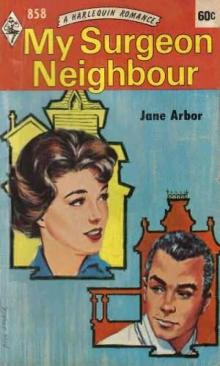 My Surgeon Neighbour
My Surgeon Neighbour Lake of Shadows
Lake of Shadows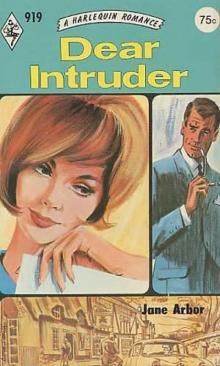 Dear Intruder
Dear Intruder Flash of Emerald
Flash of Emerald Return to Silbersee
Return to Silbersee Far Sanctuary
Far Sanctuary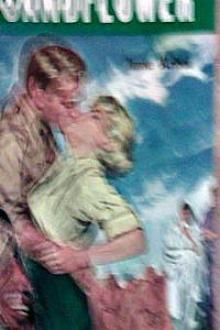 Sandflower
Sandflower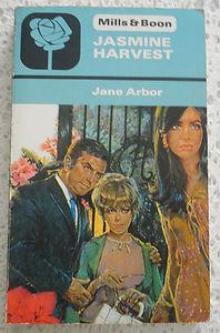 Jasmine Harvest
Jasmine Harvest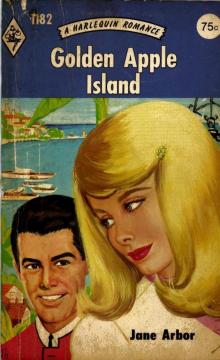 Golden Apple Island
Golden Apple Island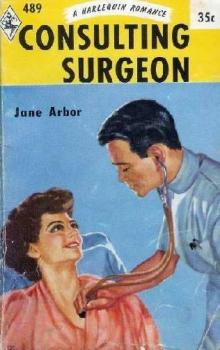 Consulting Surgeon
Consulting Surgeon Pact without desire
Pact without desire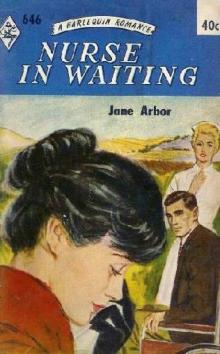 Nurse in Waiting
Nurse in Waiting Wildfire Quest
Wildfire Quest Roman Summer
Roman Summer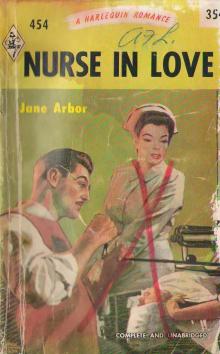 Nurse in Love
Nurse in Love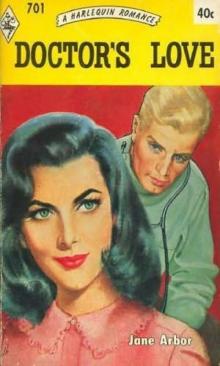 Doctor's Love
Doctor's Love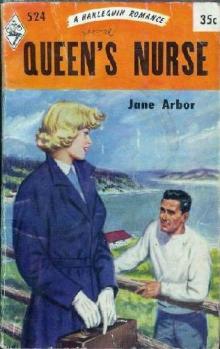 Queen's Nurse
Queen's Nurse Meet the Sun Halfway
Meet the Sun Halfway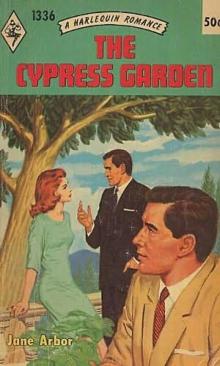 The Cypress Garden
The Cypress Garden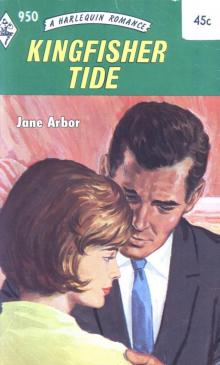 Kingfisher Tide
Kingfisher Tide A Growing Moon
A Growing Moon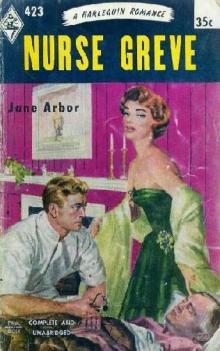 Nurse Greve
Nurse Greve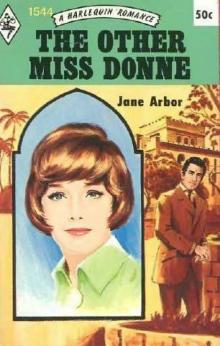 The Other Miss Donne
The Other Miss Donne